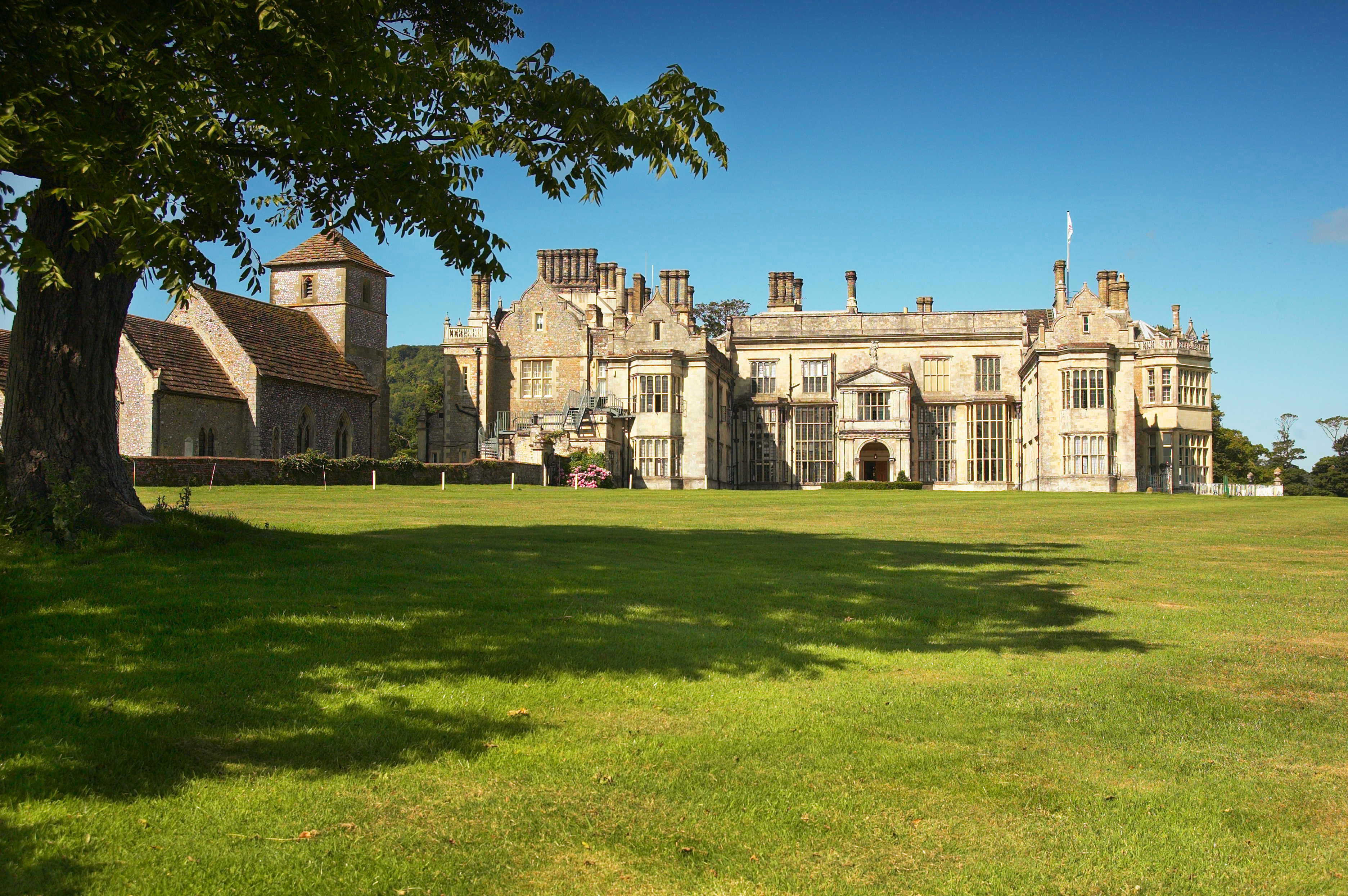Evo-chromo: towards an integrative approach of chromatin dynamics across eukaryotes
Organisers: Frederic Berger and Ines Anna Drinnenberg
Date: 4 - 7 November 2018
Location: Wiston House, UK
EVO-DEVO has provided deep changes in our understanding of developmental mechanisms and widened the scope of the diversity of solutions found by distinct groups of organisms to control embryogenesis and differentiation. Although the field of epigenetics and chromatin revolutionized our understanding of biology in the past decade, most studies have been confined to a few model organisms, while evolutionary considerations have been largely left aside. Yet, recent forays into the biology of non-model organisms are revealing an unexpected diversity of chromatin and epigenetic regulation. With the rapid expansion of newly sequenced genomes it is now time to combine the expertise in molecular evolution and chromatin biology. This workshop will explore the following new fields of research;
1. Expansion of genomic and proteomic data mining to reconstruct the evolutionary trajectories of chromatin composition and regulation
2. New tools to access and combine the extensive genomic data in a large range of organisms for comparative genomics
3. Impact of chromatin on Genome dynamics
4. New experimental tools and model systems to explore the diversity of chromatin
5. The reciprocal impacts between chromatin dynamics and evolution of genome architecture
This is the first proposal of its kind integrating skills and interests of the fields of chromatin biology and evolutionary biology. The major objective of this workshop is to foster the initiation of a new field of biology that associates molecular phylogeny, genomics, genetics and structural biology applied to chromatin and genome regulation studies. This workshop will combine the expertise of these fields to comprehend the global picture of chromatin dynamics across evolution.
We anticipate that the development of EVO-CHROMO will have a deep impact in biology.
1) It will promote development of new model organisms to fill the gaps in the current representation of existing biological diversity.
2) New insights in chromatin biology and genome structure will be obtained.
3) Exploration of the interdependency between phylogenetics, chromatin composition and genome architecture is expected to lead to new concepts in evolution.
Organisers & speakers
Frederic Berger Gregor Mendel Institute of Molecular Plant Biology, Austria
Ines Anna Drinnenberg Institut Curie, France
Juan Ausio University of Victoria, Canada
Wendy Bickmore The University of Edinburgh, UK
Simon Elsässer Karolinska Institute, Sweden
Douglas H Erwin Smithsonian Institution, USA
Brandon Gaut University of California, Irvine, USA
Steven Henikoff Fred Hutchinson Cancer Research Center, USA
Siavash Kurdistani University of California, Los Angeles, USA
Bernardo Lemos Harvard University, USA
Karolin Luger University of Colorado Bolder, USA
Harmit Malik Fred Hutchinson Cancer Research Center, USA
Catherine Peichel University of Bern, Switzerland
Danny Reinberg Howard Hughes Medical Institute, USA
Marilyn B Renfree The University of Melbourne, Australia
Bob Schmitz The University of Georgia, USA
Ulrich Technau University of Vienna, Austria
Joe Thornton University of Chicago, USA
Kenneth Wolfe University College Dublin, Ireland
Early-career researchers
This Workshop is now full.
We offer around 10 funded places for early-career researchers to attend our Workshops along with the 20 speakers. We just ask that you pay for your own travel costs. If you would like to attend please complete the application form and attach a one page CV and a letter of support from your supervisor.
All attendees are expected to actively contribute to the Workshops by asking questions at presentation sessions and taking part in discussions.
At some Workshops, early career scientists are given additional responsibilities to promote their involvement, such as:
- Write a daily blog for the Node
- Summarise the previous day’s themes to set the scene for the next day’s sessions
- Present a poster on their research interests
- Propose future directions and collaborations
- Give a short talk on their research
- Make a short 2 minute video on their experience at the
Workshop
Most of these activities would be carried out in pairs or small
groups and often with the support of more senior scientists present.
About Wiston House

The Workshops will be held at the beautiful Wiston House, which is a 16th century Grade I listed building located at the foot of the South Downs in West Sussex. The house is surrounded by over 6,000 acres of parkland with magnificent views from the mile-long drive.
Wiston House is the home of Wilton Park, one of the world’s leading centres for the discussion of key international policy issues. Wilton Park was created in 1946 to help re-establish peace and democracy in Europe as part of an initiative inspired by Winston Churchill. Wiston House has an amazing history and appears in the Domesday Book, the register of English possessions made by William the Conqueror in 1086, 20 years after he won the Battle of Hastings.
Wiston House is 32 miles from Gatwick Airport and 60 miles from Heathrow Airport. The nearest train station is Shoreham-by-Sea, which is a 20 minute taxi ride from Wiston House and takes 1 hour 10 minutes from London Victoria.
Wiston House
Steyning Road
Steyning
West Sussex
BN44 3DZ
Tel: +44 (0) 1903 815020
www.wistonhouse.co.uk








You must be logged in to post a comment.